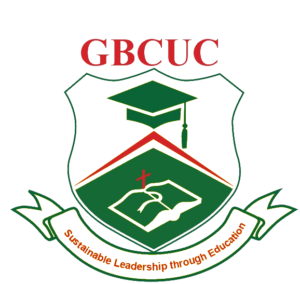
PROGRAM INFORMATION
TYPE: BACHELOR DEGREE
DURATION: 4 YEARS
ACCREDITATION: HEA, ZQF LEVEL 7
BACHELOR OF ARTS WITH EDUCATION (BUSINESS STUDIES AND MATHEMATICS EDUCATION)
The Bachelor of Arts with Education in Business Studies and Mathematics Education is a program that integrates two critical disciplines: business studies and mathematics education. This degree program is designed for individuals who have a passion for teaching, coupled with an interest in business and mathematics.
The curriculum for this degree program combines theoretical knowledge in business studies and mathematics education with practical skills necessary for effective teaching. Students will gain a strong foundation in core business concepts such as accounting, marketing, economics, and finance. In addition, students will develop essential skills in mathematics education, including problem-solving, critical thinking, and communication.
Graduates of this program will be well-equipped to pursue careers in education, business, and related fields. They will have the skills and knowledge necessary to teach mathematics at the secondary level, while also possessing a strong understanding of the business world. They may also choose to pursue careers in business, such as management, consulting, or entrepreneurship.
Overall, the Bachelor of Arts with Education in Business Studies and Mathematics Education is an ideal program for individuals who wish to combine their interests in education, business, and mathematics, and who seek to make a positive impact in these fields.
Program Outline
YEAR 1 | |
EDU 1121 | INFORMATION AND COMMUNICATION TECHNOLOGY |
ENT 1100 | PERSPECTIVES OF ENTREPRENEURSHIP |
CSS 1100 | COMMUNICATION AND STUDY SKILLS |
ENT 1101 | INTRODUCTION TO ENTREPRENEURSHIP |
MED 1210 | FOUNDATIONS TO MATHEMATICS 1 |
EDU 1222 | HISTORY AND PHILOSOPHY OF EDUCATION |
ECN 1102 | INTRODUCTION TO MICRO-ECONOMICS |
ACC 1103 | INTRODUCTION TO ACCOUNTING
|
MED 1210 | FOUNDATIONS TO MATHEMATICS 2 |
ECN 1104 | INTRODUCTION TO MACRO ECONOMICS |
YEAR 2 | |
EDU 2123 | SPECIAL EDUCATION, GUIDANCE AND COUNSELLING |
MED 2210 | ANALYTIC GEOMETRY |
ENT 2001 | MARKETING |
ECN 2002 | INTERMEDIATE MICRO ECONOMICS |
ACC 2003 | INTERMEDIATE FINANCIAL ACCOUNTING 1 |
EDU 2224 | EDUCATIONAL PSYCHOLOGY |
ECN 2004 | INTERMEDIATE MACRO ECONOMICS |
MED 2220 | LINEAR ALGEBRA |
MED 2230 | CALCULUS 1 |
ACC 2005 | INTERMEDIATE FINANCIAL ACCOUNTING 2 |
ACC 2320 | COST AND MANAGEMENT ACCOUNTING |
YEAR 3 | |
EDU 3121 | EDUCATIONAL RESEARCH METHODS |
EDU 3129 | SCHOOL TEACHNG PRACTICE |
ACC 3001 | MANAGERIAL ECONOMICS |
MED 3210 | ADVANCED CALCULUS |
ECN 3002 | MONEY AND BANKING |
LAW 3003 | COMPANY LAW 1 |
EDU 3222 | SOCIOLOGY OF EDUCATION |
ECN 3004 | CORPORATE FINANCE |
MED 3230 | INTRODUCTION TO STATISTICS & PROBABILITY
|
MED 3240 | MATHEMATICS TEACHING METHODS |
MED 3450 | REAL ANALYSIS |
BUS 3005 | INVESTMENT AND PORTFOLIO MANAGEMENT |
BUS 3006 | BUSINESS ETHICS CORPORATE AND SOCIAL RESPONSIBILITY |
YEAR 4 | |
EDU 4121 | THEORY AND PRACTICE OF EDUCATION |
BUS 4001 | E COMMERCE |
BUS 4002 | RESEARCH PROJECT |
LAW 4003 | COMPANY LAW 11 |
EDU 4222 | EDUCATIONAL LEADERSHIP AND MANAGEMENT |
MED 4210 | FUNCTIONS OF ONE COMPLEX VARIABLE |
Programme Learning Outcomes
The key learning outcomes for a Bachelor of Arts with Education (Business Studies and Mathematics Education) include:
- Business knowledge: Students will develop a deep understanding of business concepts, theories, and practices that are relevant to various industries and sectors.
- Mathematical proficiency: Students will develop proficiency in mathematical concepts and techniques, and the ability to apply them in practical and theoretical contexts.
- Pedagogical skills: Students will acquire the knowledge, skills, and strategies necessary to effectively teach mathematics in diverse classroom settings.
- Critical thinking: Students will develop critical thinking skills and the ability to analyze complex problems and evaluate evidence-based solutions.
- Communication skills: Students will learn to communicate effectively with diverse audiences through written and oral presentations, as well as through digital media and other forms of communication.
- Ethical and professional conduct: Students will develop a strong sense of ethical and professional conduct, and will learn to act responsibly and with integrity in all aspects of their work.
- Research skills: Students will develop research skills, including the ability to identify relevant sources of information, analyze data, and draw evidence-based conclusions.
- Leadership and teamwork: Students will learn to work effectively in teams, and develop leadership skills that are essential in today’s rapidly changing business and educational environments.
- Curriculum development: Students will acquire the knowledge and skills necessary to develop and implement effective mathematics curricula that are aligned with national and international standards.
- Cultural competency: Students will develop cultural competency, including an understanding of the diverse perspectives, experiences, and backgrounds of students and colleagues, and the ability to work effectively in diverse settings.
